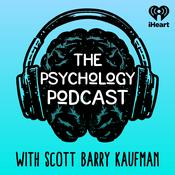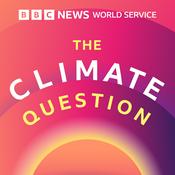236 episodes
- After a brief production pause, The Criminologist Podcast returns with a powerful blend of updates and reflections — both current and classic!!!
In this episode, host Joseph Arvidson shares some exciting developments surrounding the ongoing implementation and development of the TIDES Supervision Model, including:
✅ Recent success rolling out TIDES with Partners in Behavioral Health in Minnesota ✅ Expansion of our training delivery options — now offering both in-person (3-day) and virtual formats for the Initial User Training ✅ The launch of our Train-the-Trainer (ToT) curriculum, designed to support internal agency capacity-building ✅ A heartfelt shoutout to Nicole Kimberley-Staeheli (TIDES Co-Creator) and Heather Young (our newly minted TIDES Trainer) — your dedication is helping this model thrive!
🎯 As part of our collaboration with PBH, we also began integrating the DRAOR assessment (Dynamic Risk Assessment for Offender Reentry), developed by Dr. Caleb Lloyd, as a dynamic complement to TIDES. For agencies seeking a desistance-aligned measurement tool, DRAOR is a game changer.
But that's not all...
🔁 In the spirit of "Greatest Hits" and in lieu of a new guest, we're re-releasing a must-hear 2021 interview with the legendary Brad Bogue of J-SAT. Brad offers an unparalleled critique of the Needs Principle in RNR, challenges assumptions around the so-called "Big Four," and presents a re-framing that still stirs discussion today.
This is essential listening for anyone committed to evidence-based supervision, differential diagnosis, and the evolution of our field.
📌 Links & Resources
🔗 Learn more about Brad Bogue and J-SAT: https://www.j-sat.com/ 🔗 Explore the TIDES Supervision Model: https://thetidesllc.com/ 🎥 Subscribe to The Criminologist YouTube Channel for bonus content and video drops: https://www.youtube.com/@TheCriminologist
Learn more about Partners in Behavioral Healthcare: Partners in Behavioral Healthcare
🎧 As always, thank you for being part of this growing community. And remember: There's no them. There's only us. - In this powerful reunion episode, Kam Stevens returns to The Criminologist—not only as a global changemaker, but as a passionate advocate for lived experience, human dignity, and digital innovation in justice reform.
Since first joining us on Episode 40 nearly five years ago, Kam's journey has been nothing short of extraordinary. In this conversation, we explore his global justice work through the lens of digital equity, system transformation, and cultural healing. We talk about the evolving landscape of Justice 2.0, the power of elevating lived experience inside systems, and how Kam continues to champion trauma-informed, person-centered approaches to change.
We also dive into his latest project—Sphear Music, a Web3-based platform reshaping how music, storytelling, and justice-oriented voices are heard and valued.
From frontline reintegration to high-level digital consultancy, Kam invites us to reimagine what true reform can look like—where technology and humanity are no longer at odds, but allies.
🎧 Whether you work in probation, prisons, tech, policy, or the arts—this conversation will move you, challenge you, and inspire action.
🔗 Listen now and join the movement toward systems rooted in connection, equity, and collective growth.
Learn more about Justice 2.0
Connect with Kam on Linked In EP 235: Becoming the Brave One: Amanda Carrasco on Surviving Trauma, Embracing Restorative Justice, and Reclaiming Her Voice
11/10/2025 | 1h 2 mins.In this powerful episode of The Criminologist Podcast, Joseph Arvidson sits down with author, restorative justice advocate, and survivor Amanda Carrasco. Her debut memoir, Becoming the Brave One, chronicles her harrowing journey through childhood trauma, systemic injustice, and ultimately, transformation through healing and storytelling.
Amanda opens up about the writing process, and why accountability, not punishment, should be the cornerstone of a truly restorative justice system. Her work challenges practitioners, policymakers, and survivors alike to imagine a world where courage and compassion coexist.
If you've ever wondered what it means to not just survive, but to thrive — this is the episode for you.
📚 Learn More About Amanda Carrasco
🌐 Official Website: amandacarrasco.com
📖 Buy the Book – Becoming the Brave One: Amazon Link
📘 Goodreads: Follow the Book
📱 Follow Amanda on Social Media
📸 Instagram: @amanda_the_brave_one
🎵 TikTok: @amandacarrasco.com
🐦 X (formerly Twitter): @Amanda_Carrasco
🔗 Episode Highlights
The emotional and intellectual process of writing Becoming the Brave One
Amanda's experience with restorative justice — and why survivors need a voice, not vengeance
Advice for justice professionals who work with survivors of complex trauma
The healing power of storytelling — and the risks of staying silent
🎧 Connect With The Criminologist Podcast
If this conversation moved you, please:
⭐ Leave us a review
📲 Share this episode
🔔 Subscribe for more interviews exploring desistance, neuroscience, trauma, and transformational justice
Thank you for supporting voices that matter.WP 234: Killer in the Family....Understanding Intra-Familial Homicide with Dr. Jerrod Brown
23/8/2025 | 59 mins.In this gripping episode, we welcome back frequent guest and forensic mental health expert Dr. Jerrod Brown to explore the devastating phenomenon of intra-familial homicide—when murder occurs within the home, at the hands of someone trusted and loved.
From uxoricide (husbands killing wives) to parricide (children murdering parents), these crimes tear at the fabric of our social and emotional understanding. Why do they happen? How can we spot the warning signs? And what role does neurocriminology play in helping us make sense of the unthinkable?
🎙️ Dr. Brown brings insight from his recent media appearance in People Magazine, where he was quoted in their True Crime Special Edition: A Killer in the Family. As he explains:
"People are fascinated by complex and deviant behavior. They want to understand the 'why' behind these cases." – Dr. Jerrod Brown, People Magazine, August 2025
We also discuss:
Patterns and motivations in family-based homicide
Prevention and risk factors from a forensic lens
The psychological dynamics of betrayal, control, and violence
🌍 PLUS: Host Joe Arvidson shares a special shout-out to his new friends and listeners in Uruguay, where he just returned from a Fulbright Specialist assignment training national justice professionals on evidence-based supervision strategies.
🔗 Resources Mentioned in this Episode:
📖 People Magazine: A Killer in the Family Read the article
🧠 AAMFT article on Intra-Familial Homicide Definitions and Framework
📜 Professional Certificate: Becoming a Neurocriminology-Informed Professional Explore the Program
📬 Contact Dr. Jerrod Brown: [email protected]
🎧 Explore more episodes featuring Dr. Brown by searching The Criminologist Podcast in your favorite app!
🧠 Follow us for more insights into criminal behavior, neuroscience, desistance theory, and human-centered supervision strategies.
🎙️ The Criminologist Podcast And always remember, folks—there's no them. There's only us.- In this quick-hit mini-sode, host Joe Arvidson checks in with listeners to share exciting updates from The Criminologist universe!
Joe talks about prepping for his upcoming Fulbright Specialist assignment in Uruguay—where he'll be training corrections professionals in evidence-based practices like the Risk-Need-Responsivity model, trauma-informed care, and desistance theory.
He also reflects on summer podcast plans, international connections, and what to expect in upcoming episodes. It's a brief message, but packed with gratitude, global perspective, and a sneak peek into what's next.
🌎 Montevideo is calling. 🎧 Tune in now, share with a colleague, and stay subscribed for more!
#TheCriminologist #Fulbright #Uruguay #EvidenceBasedPractice #RNR #TraumaInformedCare #Desistance #GlobalJustice #CorrectionsTraining #PodcastMiniSode
More Science podcasts
Trending Science podcasts
About The Criminologist
Host Joseph Arvidson brings criminologist, practitioners, academics and those with lived experiences from around the world together to discuss the age old dilemma of responding to society's criminal element. Merging established correctional policy with emerging desistance models, this show illustrates how adopting a holistic lens and constantly questioning established approaches can best serves justice involved individuals.
Podcast websiteListen to The Criminologist, Futureproof with Jonathan McCrea and many other podcasts from around the world with the radio.net app

Get the free radio.net app
- Stations and podcasts to bookmark
- Stream via Wi-Fi or Bluetooth
- Supports Carplay & Android Auto
- Many other app features
Get the free radio.net app
- Stations and podcasts to bookmark
- Stream via Wi-Fi or Bluetooth
- Supports Carplay & Android Auto
- Many other app features


The Criminologist
Scan code,
download the app,
start listening.
download the app,
start listening.





































